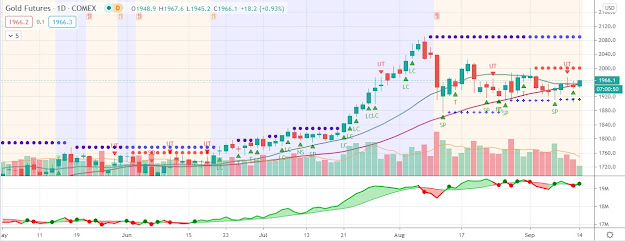The rebound in the U.S. dollar and the euro’s weakness helped support the gold price
The gold price dipped $6.62, or 0.4%, to $1,620.13 per ounce Monday
morning after this weekend’s Greek election that saw the pro-European
bailout New Democracy party win. The spot price of gold
slid to as low as $1,610.83 in overnight trading, but subsequently
pared its losses as risk aversion increased as financial markets became
less enthusiastic over the implications of the election results. The
euro currency initially climbed to 1.2759 against the U.S. dollar on
Sunday evening, but later tumbled below the 1.26 level.
The rebound in the U.S. dollar and the euro’s weakness helped support the gold price, and put pressure on the broader financial markets. Investors shifted their concerns from Greece to Spain on Monday, as the yield on Spanish ten-year bonds jumped to a euro-area high above 7.2%. European equity markets opened sharply higher but ended up surrendering the majority of their gains as trading progressed.
Looking ahead for the gold price, while European sovereign debt issues are likely to remain a key factor, investors will also be keeping a close eye on the Federal Reserve. Fed Chairman Ben Bernanke and his fellow central bankers will be holding their next Federal Open Market Committee (FOMC) meeting on Tuesday and Wednesday, followed by their monetary policy announcement Wednesday afternoon.
Barclays discussed its forecast for the Fed meeting in a recently-published report, noting that “(We) now expect the FOMC to ease policy further and see a short-term extension of Operation Twist as the most likely outcome. (That) would give the Fed a few more months to sort out whether the recent softness in data is … payback for the warm winter weather or a more prolonged slowdown.”
“If the latter is the case, then more outright asset purchases that expand the balance sheet (QE3) would become likely,” Barclays added.
The rebound in the U.S. dollar and the euro’s weakness helped support the gold price, and put pressure on the broader financial markets. Investors shifted their concerns from Greece to Spain on Monday, as the yield on Spanish ten-year bonds jumped to a euro-area high above 7.2%. European equity markets opened sharply higher but ended up surrendering the majority of their gains as trading progressed.
Looking ahead for the gold price, while European sovereign debt issues are likely to remain a key factor, investors will also be keeping a close eye on the Federal Reserve. Fed Chairman Ben Bernanke and his fellow central bankers will be holding their next Federal Open Market Committee (FOMC) meeting on Tuesday and Wednesday, followed by their monetary policy announcement Wednesday afternoon.
Barclays discussed its forecast for the Fed meeting in a recently-published report, noting that “(We) now expect the FOMC to ease policy further and see a short-term extension of Operation Twist as the most likely outcome. (That) would give the Fed a few more months to sort out whether the recent softness in data is … payback for the warm winter weather or a more prolonged slowdown.”
“If the latter is the case, then more outright asset purchases that expand the balance sheet (QE3) would become likely,” Barclays added.




Comments
Post a Comment